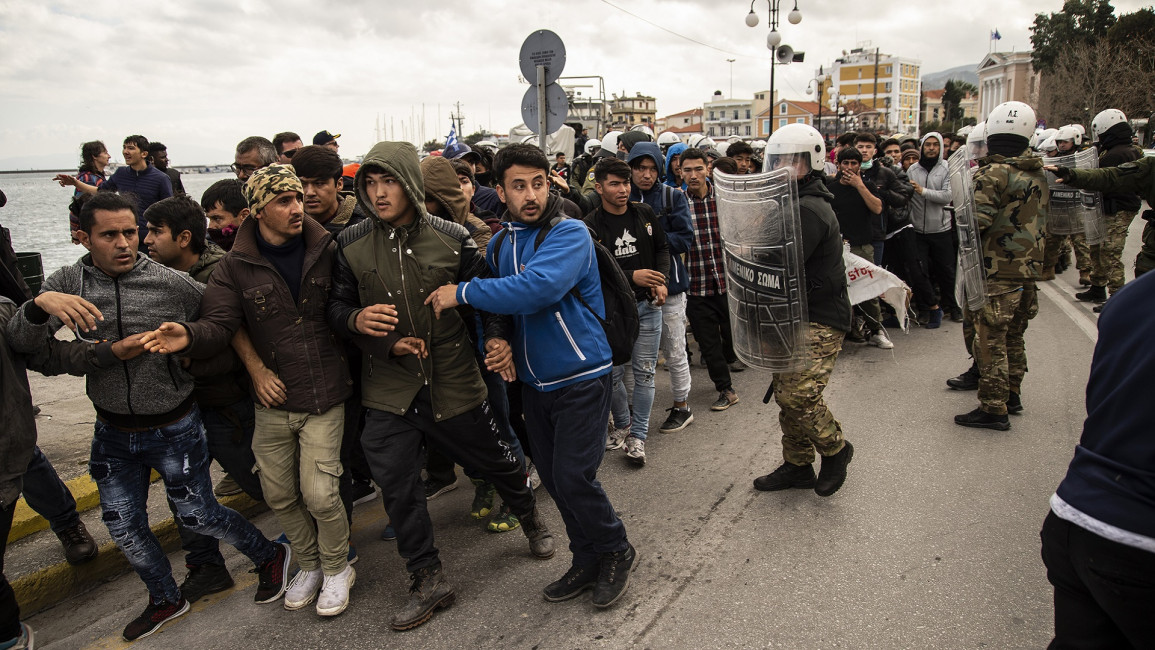Greek police arrest seven people for conspiring to attack Lesbos refugees
Police on the Greek island of Lesbos on Friday said they had arrested seven people on suspicion of planning attacks on migrants in the wake of anti-camp demonstrations this week.
The seven men, aged 17 to 24, were arrested on Thursday in possession of makeshift clubs and a metal rod, police said.
"An investigation showed that the suspects had banded together to carry out illegal acts mainly against foreign migrants," the police said in a statement.
Two more minors are sought in connection with the case.
Overpopulation in the Moria refugee camp and other migrant camps on Lesbos and other Greek islands near Turkey has led to an outpouring of anger in recent days, with locals accusing asylum-seekers of stealing livestock and damaging agricultural property.
On Monday, hundreds of migrants on Lesbos staged a protest against tougher new asylum rules and camp conditions, demanding to be allowed to leave.
Moria, Greece’s largest refugee camp, has previously been described as “hell on earth” due to the overcrowding and lack of basic services there, with even refugee children contemplating suicide.
When some of the protesters neared the village of Moria – which gives its name to the refugee camp - residents called on the police to deny them entry.
Read also: The abusive NGO with a stranglehold on refugees’ lives
Tear gas was fired to keep the migrants from entering the island capital of Mytilene.
In the following days, news reports and social media said local residents had formed vigilante patrols to intimidate migrants and NGO groups supporting them.
In 2019, Greece became the first port of entry for migrants and refugees entering Europe.
The government has struggled to manage the influx, keeping many in overcrowded camps on the Aegean Greek islands near the Turkish coast.
At Moria, where more than 19,000 people live in and outside a camp built for fewer than 3,000, many are housed in tents and makeshift shelters without access to power, heating, or hot water.
About half of Moria’s residents hail from Arab countries, mostly Syria and Iraq, with a significant portion of Kuwaiti Bidoon – people indigenous to Kuwait but denied citizenship by the Kuwaiti government.
Other refugees come from Afghanistan, Cameroon, and the Democratic Republic of Congo where under-reported conflicts are taking place. In 2018, the camp hosted refugees from 64 countries in total.
More than 36,000 asylum-seekers are currently crammed into camps on five islands, where the official capacity is for 6,200 people and in conditions repeatedly condemned by aid agencies.



